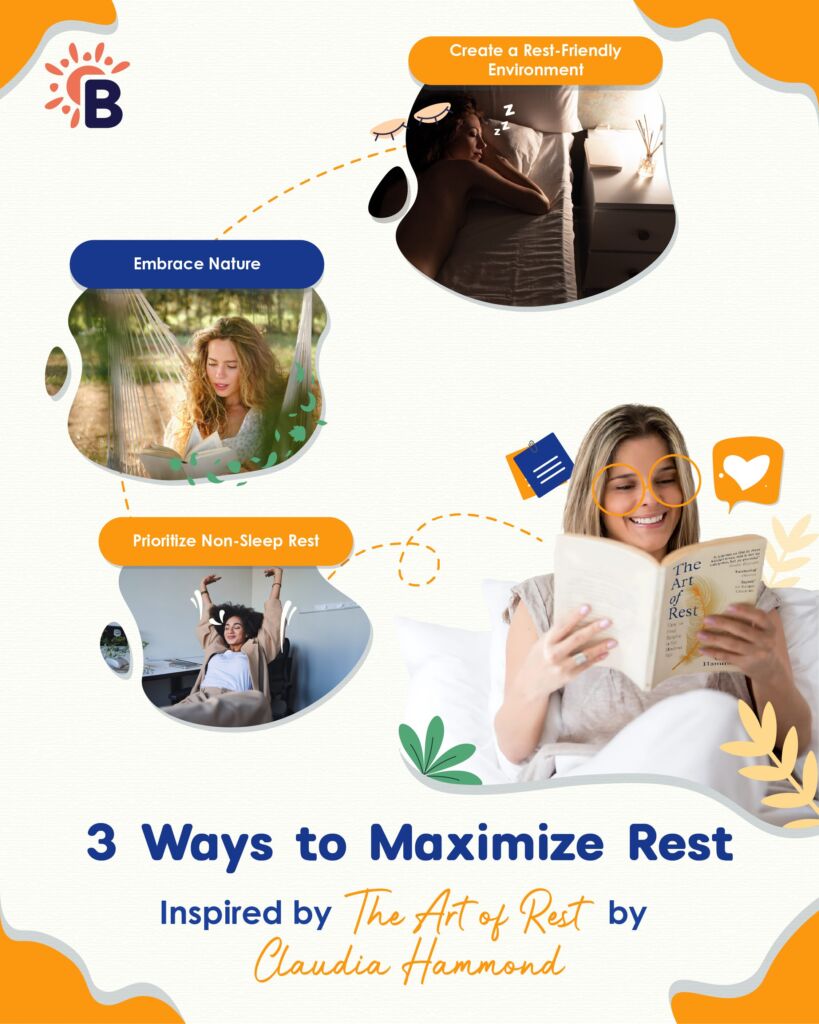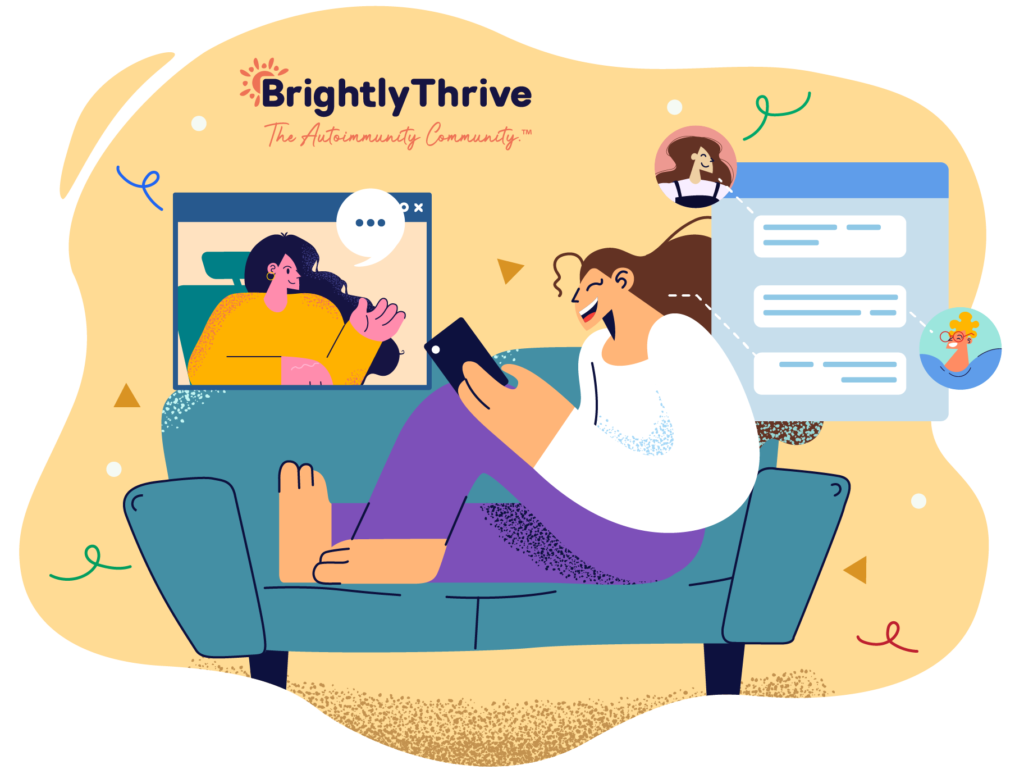
Stress Less, Rest More: A Key to Autoimmune Healing
Rest is just as important as any treatment you’re taking for your autoimmune condition—maybe even more.
It’s a bold claim, but here’s why: without proper rest, your body can’t fully heal or function, no matter how many medications or therapies you’re using.
Stress and lack of rest don’t just make you feel tired; they amplify autoimmune symptoms like fatigue, pain, and inflammation. That’s why rest isn’t just helpful—it’s absolutely essential.
Sleep
Sleep isn’t just about closing your eyes and getting a few hours of downtime. It’s when your immune system does its most important work. Deep, restorative sleep—like the kind you get in REM cycles—allows your body to repair damage, reduce inflammation, and restore balance.
For those living with autoimmune conditions, this process is even more critical. If you’re not getting enough quality sleep, your body can’t reset properly, making it harder to manage flare-ups and symptoms.
Rest Intervals
Rest isn’t just limited to sleep, though. High stress levels, common triggers for autoimmune flares, need to be managed throughout the day. And one of the best ways to do that? Taking short breaks to rest, meditate, or just breathe.
These restful moments help shift your body from a state of high alert (fight-or-flight) into a more relaxed, healing mode (the parasympathetic state). When this happens, stress hormones like cortisol drop, inflammation lowers, and your body feels calmer.
Kinds of Rest
Rest isn’t only physical—it’s emotional, too. Stressful situations often leave you emotionally drained, which only worsens autoimmune symptoms. Without mental rest, it’s easy to spiral into feelings of overwhelm. That’s why stepping back to reset emotionally is crucial.
It might be through meditation, a quick nap, or simply giving yourself permission to do nothing for a bit. Even small mental breaks can help you regain control, so you’re better equipped to manage both stress and symptoms.
3 Ways to Maximize Rest
In The Art of Rest by Claudia Hammond, she highlights three essential ways to maximize rest, particularly for those managing autoimmune conditions:

1. Prioritize Non-Sleep Rest: Rest doesn’t always have to mean sleep. Hammond emphasizes the importance of activities like meditation or simply sitting quietly to allow both the body and mind to recover.
This is particularly beneficial for individuals with autoimmune conditions, who often experience chronic fatigue. Incorporating these restful moments into your day can help combat exhaustion without the need for sleep.
2. Embrace Nature: Spending time outdoors in natural environments can have a profound effect on stress levels. Nature has been shown to lower the body’s inflammatory response, which is crucial for individuals dealing with autoimmune conditions where inflammation plays a central role. Even short periods in nature can promote healing and relaxation.
3. Create a Rest-Friendly Environment: Hammond recommends designing spaces that promote relaxation by using dim lighting and minimizing noise.
These adjustments help lower stress responses, which, when chronic, can worsen autoimmune flare-ups. A calming environment supports both mental and physical relaxation, crucial for managing an overactive immune system.
By incorporating these practices, individuals can better manage the immune system’s overactivity by reducing stress, a known trigger for autoimmune conditions.
Rest as Self-Preservation
Energy conservation is another big reason rest matters. Autoimmune conditions make energy feel like a limited resource. You can’t afford to burn through it without replenishing.
Taking regular rest periods—even short ones—helps conserve your energy and prevent the dreaded crash that follows overexertion. Over time, this simple habit can make a world of difference in how well you manage your condition and its triggers.
Join BrightlyThrive™ and connect with a community that truly understands the power of rest. Whether you’re managing autoimmune challenges or simply seeking balance, we’re here to support you every step of the way. Prioritize your well-being—rest, recharge, and thrive with us!

Final Thoughts
With the holidays approaching and election season in full swing, stress levels can easily spike, making rest feel like a luxury you just can’t afford. But here’s the truth: you can’t afford not to rest. Whether it’s family gatherings, shopping lists, or keeping up with the news, it’s essential to set boundaries—with others, your workload, and even yourself. Prioritize the rest your body needs. It’s not laziness; it’s self-preservation. Rest is crucial to your well-being, and it deserves just as much respect as any treatment or self-care routine you follow.
References
Cox, T. (2024, May 17). The Importance of Proper Rest and Recovery Days When Living with Autoimmune Disease — Autoimmune Strong. Autoimmune Strong. https://www.getautoimmunestrong.com/blog/autoimmune-exercise-rest-recovery
Malecha, J. (2024, September 6). The Importance of Sleep with Autoimmune Disease. AUTOIMMUNE SISTERS. https://autoimmunesisters.com/the-importance-of-sleep-with-autoimmune-disease/
Trescott, M. (2023, March 28). Sleep: Why It’s Important For Those With Autoimmune Disease, And How To Get More Of It – Autoimmune Wellness. Autoimmune Wellness. https://autoimmunewellness.com/sleep-why-its-important-for-those-of-us-with-autoimmune-disease-and-how-to-get-more-of-it/
Andriote, J. (2023, October 31). How to Sleep Better With an Autoimmune Disease. Sleep Enlightened. https://www.saatva.com/blog/sleep-and-autoimmune-disease/
Nicole, J. (2024, August 6). From Sleepy To Spirited: The Connection Between Sleep And Autoimmune Disease | The Natural HEALing Coach. The Natural HEALing Coach. https://naturalhealing.coach/sleep-habits-for-autoimmune-disease/
TAGS:
CATEGORIES:






